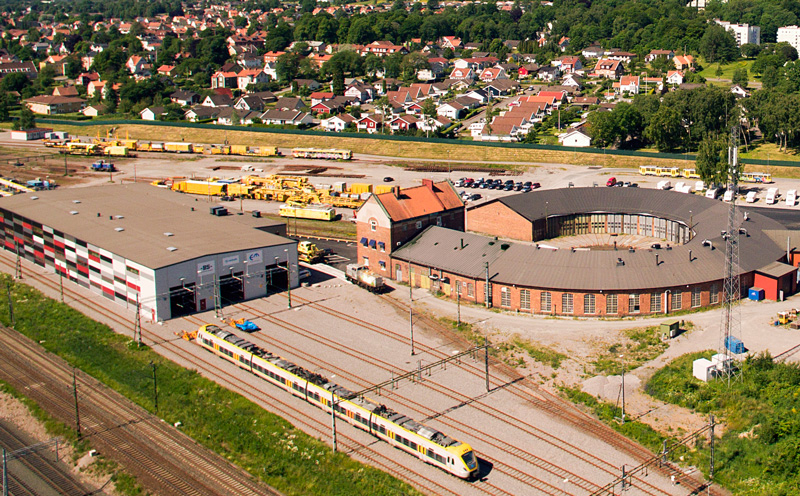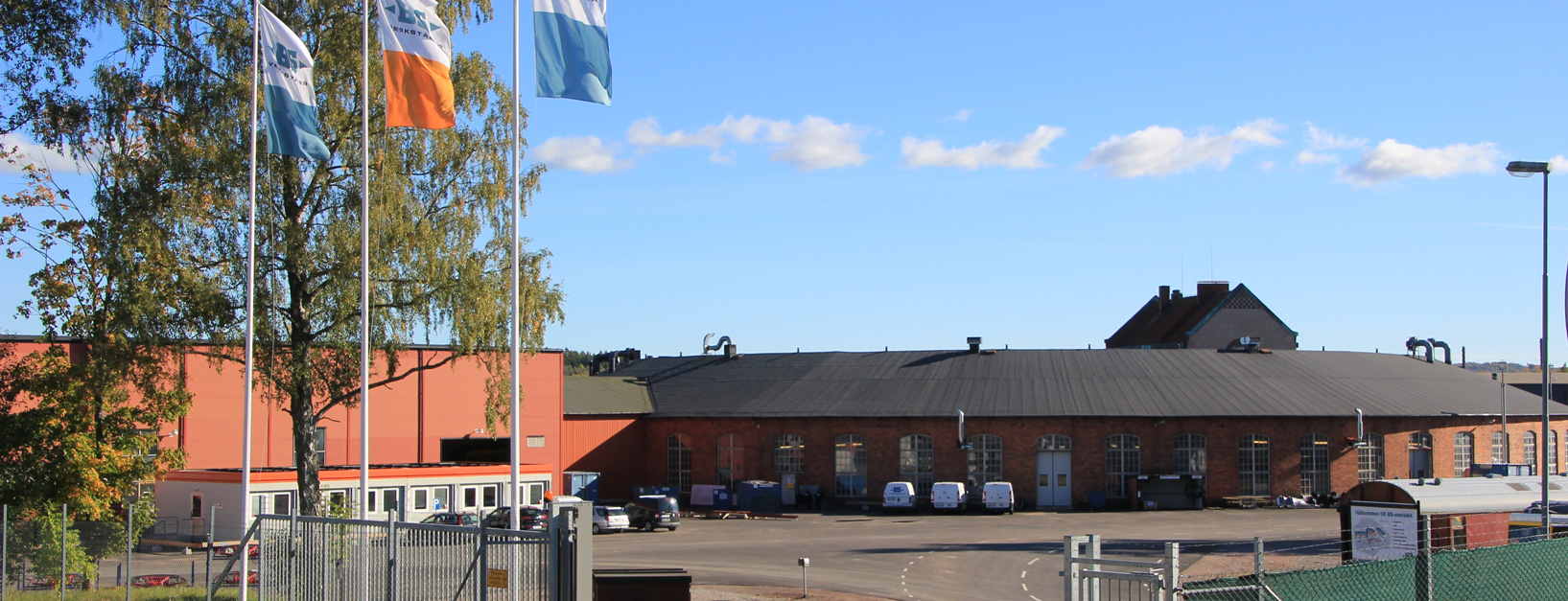
We get all on-track vehicles and machines to last longer
Established 1978
BS Verkstäder was founded in 1978 by Lars-Göran Schiller and Rolf Beijbom. The company soon added workshop services for rail vehicles to its skylift rental business. Since the early 1990s, the company’s core business has been the maintenance of railway machines.
Today we are established in the following organizations
BS Verkstäder is part of the railway cluster in Falköping skaraborglogisticcenter.se
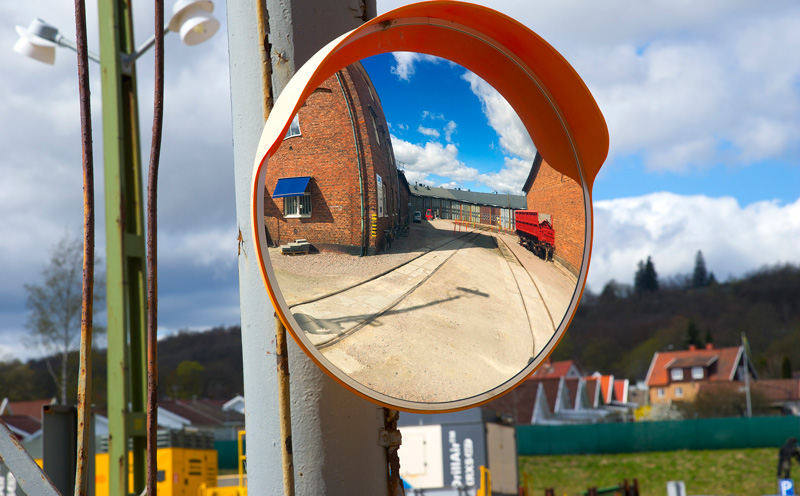
Specialists in life extension and maintenance of rail vehicles
- Life extension
- Crash damage repair
- Reconstruction
- Service and maintenance
- ETCS - Installation
- Safety inspection
- Welding according to EN 15085
- Hydraulics
We work with all types of railway vehicle:
Yellow machines, freight cars, electric and diesel locomotives, railcars (electric, diesel) museum vehicals.
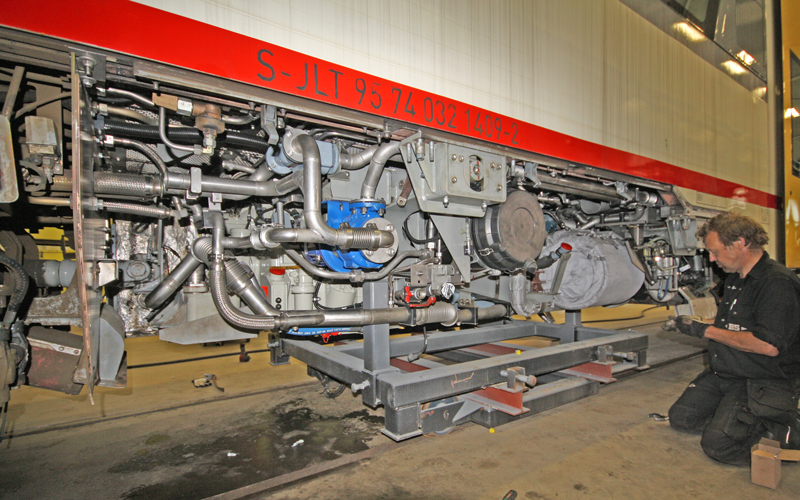
A fast-growing gazelle company
Over the years, the company has developed a variety of specialist skills and expertise. We strive to always offer complete solutions and develop in line with the market. The company acquired its large railway roundhouse in Falköping in 2001. The company currently has seven owners. BS Verkstäder was designated a Gazelle Company by Dagens Industri newspaper in 2010, 2011 and 2016. This title is awarded to high-growth companies with good financial stability.
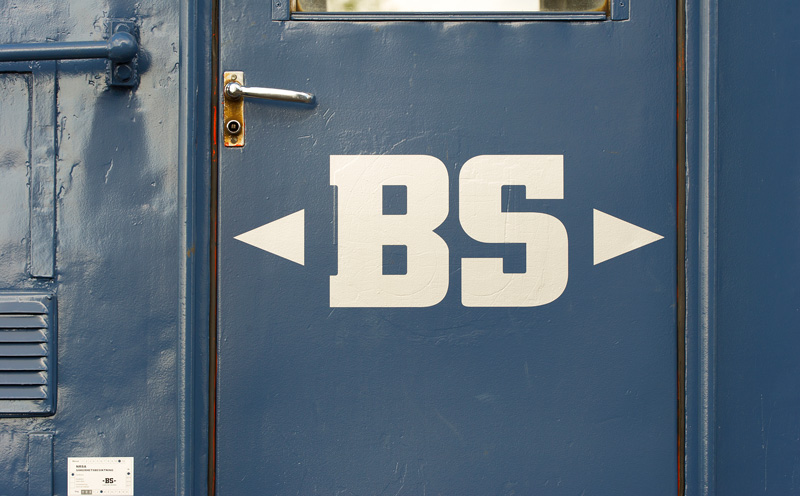
Well-equipped premises
Our production facility in Falköping contains a railway roundhouse with 24 spaces, a main workshop with two 120 metre tracks, a rail yard with a 600 metre test track and washing and painting facilities. It also contains lifting jacks, overhead cranes and plenty of parking spaces for rail vehicles.
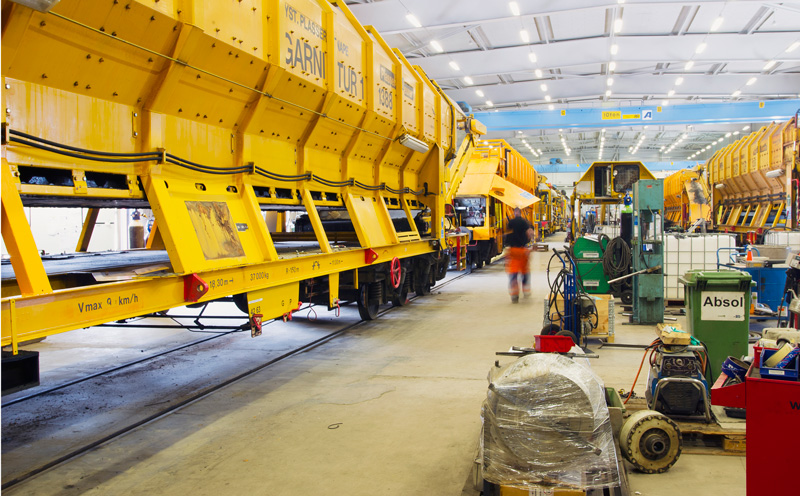
Depot for rental
In 2013, BS Verkstäder finished constructing a depot building for long-term rental to industrial companies that need train maintenance facilities in western Sweden. We already have finished plans for new depot buildings, which can be implemented if demand increases.
